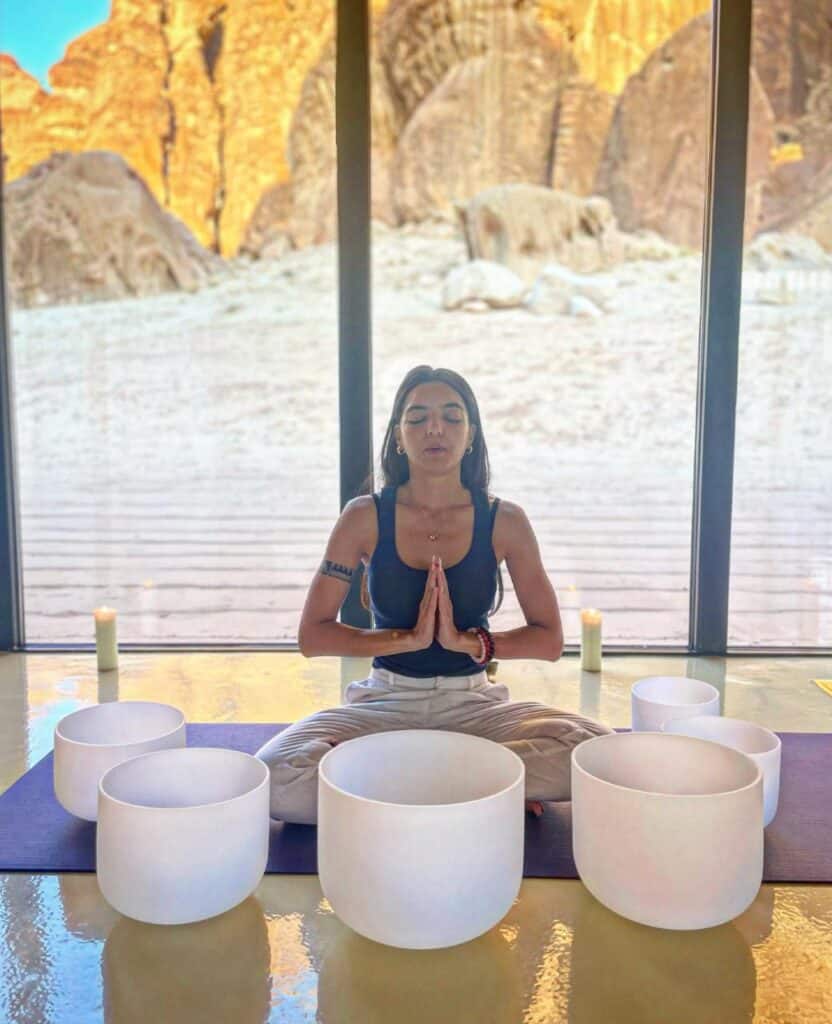The Balance Secret Behind Committed Athletes: Meditation, The Elixir For The Mind & the Body



I define myself a very curious and International person. I…
Elite athletes are often celebrated for their exceptional physical capabilities, unwavering commitment, and the ability to push their bodies to their limits. However, in today’s highly competitive sports environment, achieving success is no longer determined by physical strength and skill alone. Mental resilience has become equally essential in reaching optimal performance. One of the most effective ways to cultivate mental toughness is through meditation. While meditation is traditionally associated with relaxation or spiritual practice, it offers a broad range of psychological and physical benefits that are invaluable for top athletes.
1. Sharpened Focus and Concentration
The ability to concentrate is a critical mental skill for elite athletes. Whether it’s maintaining focus during a long race, making split-second decisions in fast-paced team sports, or executing precise movements in disciplines like gymnastics, the ability to stay mentally sharp is key. Meditation enhances focus by training athletes to direct their attention to a single point of concentration, such as their breath or a mantra, and to gently bring their mind back when distractions arise. This strengthens the brain’s capacity to block out irrelevant thoughts and maintain prolonged attention, which directly benefits athletic performance on the field, track, or court.

Sonia Haboub while meditating; Image Source: Sonia Haboub
2. Stress Relief and Emotional Regulation
Mindfulness meditation helps athletes cultivate an awareness of their thoughts, emotions, and physical sensations in a non-judgmental manner. This heightened self-awareness prevents athletes from falling into the trap of overthinking or being overly self-critical. Additionally, it provides tools for managing negative emotions such as frustration, fear, and self-doubt—feelings that frequently arise in high-pressure environments. Through meditation, athletes develop emotional resilience, learning to stay calm under stress, recover quickly from setbacks, and maintain a positive mindset—qualities that are essential for sustained top-level performance.
3. Better Sleep and Enhanced Recovery
Meditation can be a powerful tool for improving sleep quality by calming the mind and counteracting the physiological effects of stress.
Techniques such as progressive muscle relaxation, deep breathing, and guided imagery—often part of meditation practices—help promote better sleep. Studies indicate that athletes who practice meditation tend to experience deeper, more restorative sleep, which speeds up recovery and lowers the risk of injury. Moreover, quality sleep improves cognitive functions such as decision-making, memory, and reaction time—all vital for athletic performance.

Sonia Haboub while meditating through sound healing
4. Mental Resilience
Through mindfulness practices, athletes can foster a sense of calm, balance, and perspective that allows them to preserve their mental energy and maintain their passion for the sport.
Additionally, meditation builds mental resilience—the ability to recover from setbacks, failures, and difficult circumstances. This quality is crucial for athletes who face constant challenges, such as losses, injuries, and pressure to perform. Meditation encourages athletes to reframe obstacles as opportunities for growth, helping them maintain optimism and focus during difficult times


In action; Image Source: Sonia Haboub
6. Mind-Body Awareness and Holistic Well-being
While elite athletes are often deeply attuned to the physical aspects of their training, the mind-body connection is just as critical. Meditation enhances this connection by helping athletes become more aware of both their mental and physical states, enabling them to fine-tune their performance and overall well-being. This holistic approach to training not only improves athletic output but also contributes to a more balanced and fulfilling lifestyle off the field.
This mental clarity can have positive effects on an athlete’s quality of life, leading to better relationships and a healthier, more sustainable daily routine.

Image Source: Sonia Haboub
Meditation is indeed, far more than just a relaxation tool or spiritual practice. It has become a powerful resource for elite athletes looking to enhance their performance, mental health, and long-term success. By integrating meditation into their training, athletes can sharpen their focus, reduce stress, accelerate recovery, and develop the mental resilience needed to thrive in highly competitive environments. In a world where even the smallest margin of improvement can make a significant difference, meditation provides a unique advantage that supports both the body and the mind, enabling athletes to reach their highest potential while maintaining balance and well-being.
What's Your Reaction?

I define myself a very curious and International person. I have been living, studying, working and traveling in 95 different countries for the last 14 years. That experience helped me develop an international mindset both professionally and personally. I have worked in Marketing/Communication and Business development positions in the Fashion and Luxury industry as well as in other three industries before landing as a PhD Professor and Marketing content creator on my social medias page. That helped me to became much more agile in connecting and developing projects, ideas and give innovative solutions while keep evolving and adapting to new situations. I am also an Athlete and a Runner. I have always been in the sports field since I was 3 years old. Today I compete in the GCC region weekly and abroad monthly. Traveling is one of my hidden passions and it has always been a family tradition, yet also a true and life changing therapy. Growing up in a multicultural family in a stunning landscape in the Italian Alps, I’ve always been attracted to other cultures and amazing natural Earth wonders. I’ve always been a very curious person who loves and enjoys the everyday challenges. This, enhances even more during my travels. I often get the question: “What was your favorite country to travel or live in?” Or “Where are you from?” To be honest, after being in so many countries and speaking 8 languages, I consider myself a World Citizen.



